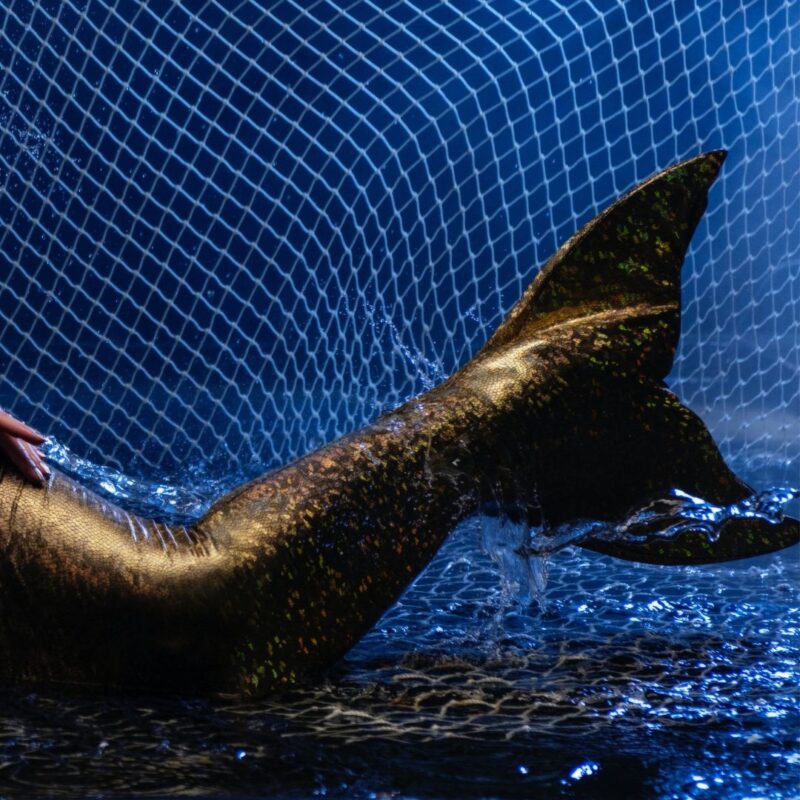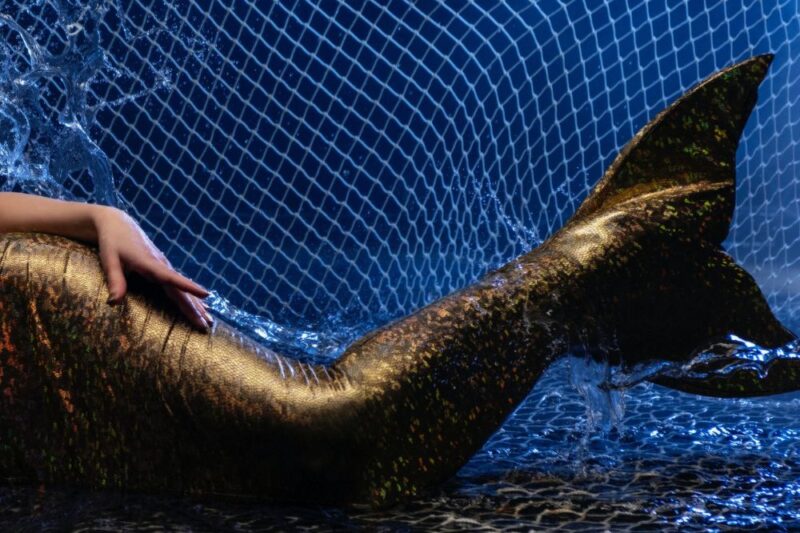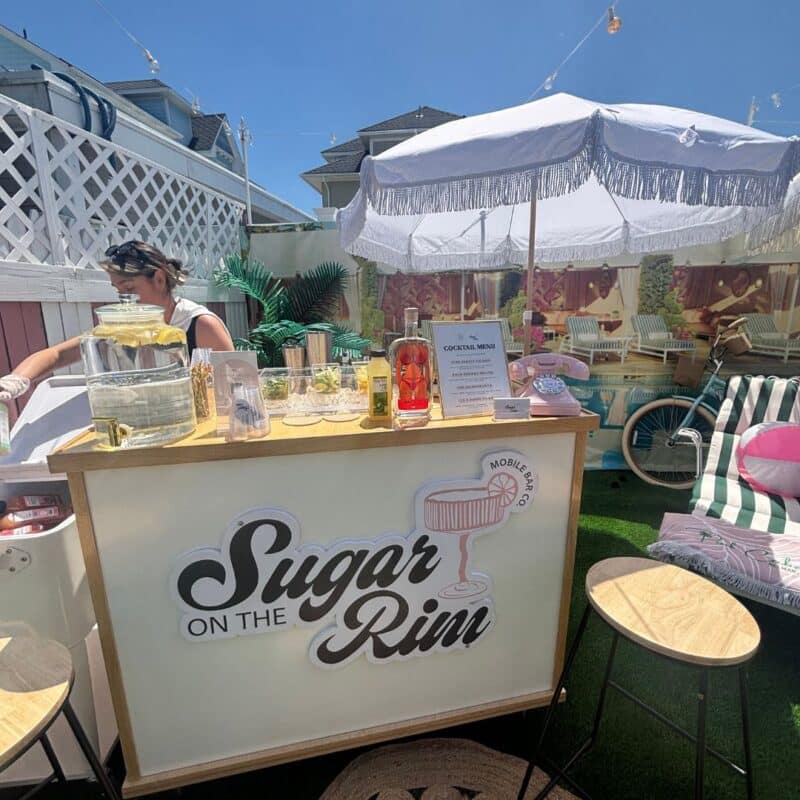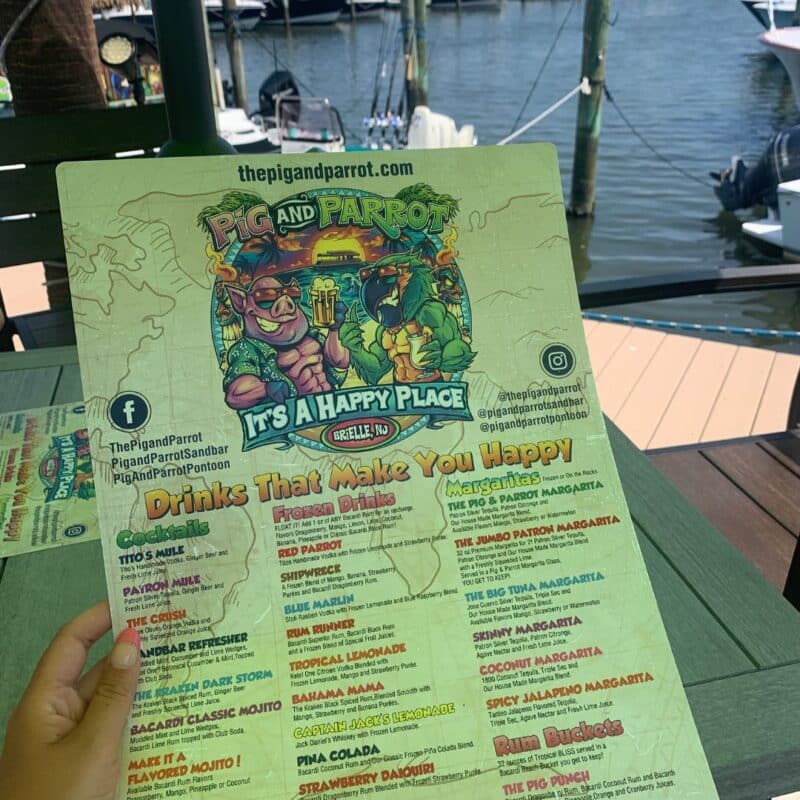When it comes to New Jersey, the first thing that may come to mind is the shore and surrounding beaches. While most people think of a beachside vacation or a platter of fresh-caught seafood, New Jersey has an incredible history of mermaids, dating back centuries. Read on for a complete rundown surrounding mermaid history right here in New Jersey.

Seeing Merfolk
In 1609, before he came upon the river we now call by his name, English explorer Henry Hudson documented his crew’s sighting of a mermaid off the coast of Greenland:
“By that time shee was come close to the ship’s side, looking earnestly on the men a little after, a sea came and overturned her from the navill upward, her backe and breasts were, like a woman’s, as they say that saw her. Her body as big as one of us, her skin very white and long haire hanging downe behinde, of colour blacke. In her going down they saw her tayle, which was like the tayle of a porposse, and speckled like a macrell.”
Hudson’s matter-of-fact account suggests the explorer didn’t question the reality of mermaids. They were rare, but not so unusual. Sadly, Hudson didn’t see any merpeople in the area surrounding what is now New York and New Jersey. But others of his era did see water women along our coasts.
River Woman of the Shatemuc
A traditional Lenni Lenape story tells of a boy taken by a sudden rushing wave while he was walking through a stream that was normally calm and safe to cross. The boy’s friends, who’d witnessed the awful event, described to his parents his sudden disappearance under the water.
Read More: 9-Year-Old Asbury Park Resident Discusses Problem of Trash on Jersey Shore Beaches
The parents of the boy went to a seer who told them that their son was alive and had been taken by a water woman. They were told that they could find their son if, at sunrise, they camped on the bank of the great river fed by the stream where their son had disappeared. The Lenape called what we refer to as the Hudson River, ‘the Shatemuc,’ and it is there that the people awaited the water woman.
Much to their surprise, the boy appeared — and he wasn’t alone. The Lenape story goes, “Before the hour, a great crowd gathered at the appointed place, and the mysterious deep began to roll and throw forth great whirlpools. And thunder or rumbling sounds burst into the air. At sunrise, behold, they saw on the waves of the great river the missing boy. At his side was a beautiful humanlike personage, said to be a mermaid.”
Tom’s River Mermaid
In 1869, an actual New Jersey mermaid was widely reported to have been found off the coast of Tom’s River. News accounts express disappointment that the fishermen who caught her were so frightened as to throw her back into the sea from which she’d come. But there would probably have been a curse in keeping her, so it’s likely better that they let her go.
A full century later, Olson’s Bar and Grill on Tom River’s Route 37 featured a mermaid posed as ‘food’ on its iconic restaurant roof. Today, that sign is no longer, but a Mermaid Road does exist and locals occasionally report sights of iridescent tail fins flashing in the waves at twilight.
A Novel Concept
One would think that authors aplenty would have documented tales of mermaids roaming our waters. But only a few published accounts exist that record this maritime history. New York Times bestselling artist and author Mark Siegel’s graphic novel, Sailor Twain: Or the Mermaid in the Hudson, tells a lusty love story that takes place on a Hudson River steamship during the Gilded Age.
Well-loved author Alice Hoffman’s The Museum of Extraordinary Things starts where Barnum’s Fejee Mermaid exploit ended. Her 2014 historical fiction novel centers on a girl who becomes entangled with mer-adventure on the Palisades cliffs. Then, there is the tale that real estate agent and storyteller Christina Sciarretta has spun for the sake of her children. Hers is an internet yarn of a mermaid named Waverly who collects treasure at the New Jersey Shore. Perhaps future writers will also see fit to give witness to the merfolk who live here.
Mer-Money Making
By the nineteenth century, mermaids were an international sensation. In 1842, the circus showman, P.T. Barnum exhibited a gruesome construction that he called the “Fejee Mermaid.” This less-than-beautiful spectacle was actually an assemblage of at least two animal corpses — hardly the stuff that dreams are made of. Still, it drew crowds to New York from all around.
Barnum exhibited the Fejee Mermaid in New York with great success for about a month. Dr. Griffin, Barnum’s partner in the mermaid scheme and a fraudster posing as a naturalist, gave lectures explaining to the crowds flooding the New York Concert Hall that all land-dwelling animals have counterparts in the ocean (e.g.: sea horses, sea lions… ). It obviously followed that sea people would exist as well.
Mer-Events
To be and see a mermaid, Coney Island hosts their Annual Mermaid Parade and recently did last month. This parade normally comes back annually so definitely be on the lookout. New Jersey’s Asbury Park has hosted its own Promenade of Mermaids and will if we are lucky, do so again in the future.
See More: A Jersey Shore Getaway to Ocean Grove
The Newport area of Jersey City adds a mermaid sighting that is the easiest to glimpse. Water’s Soul (aka The Shushing Woman) may exist in plain sight, but we see only the very top of her. Sculptor Juame Plensa describes her as an elusive water spirit. He has placed her massive white head upon a pier on the Hudson waterfront, but what lies beneath? Quite possibly, a tail. Is that the secret we are meant to keep?
Mermaid Healthcare
The gorgeously illustrated Sailor Twain features a wounded mermaid whose caregiver becomes supernaturally obsessed with her, in the vein of old siren song stories. The health and medical treatment of mermaids is often on the mind of Sara Weller, a Jersey City resident who works to program tours of the abandoned hospitals on Ellis Island. She notes that just as lighthouse keepers were provided medical care in those once state-of-the-art medical facilities, so too could the mermaids injured by steamships, ferries, and fishermen.















